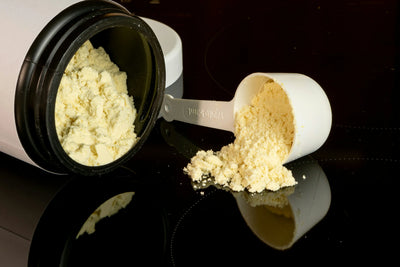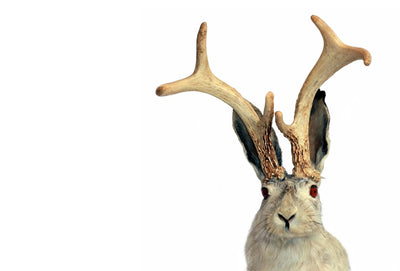Introduction
Does the sight of your family's puppy dog suddenly picking up a toy in their mouth and shaking their head frantically make you feel both adorable and a little worried? Is the reason they do this really just because of excitement? Today, we will analyze the three main reasons why dogs shake their heads with objects in their mouths, so that you can better understand your beloved pet!
The Hunting Instinct Driven By the Crazy Shaking Head
Dogs, as natural hunters, have very strong hunting instincts. When they have something in their mouth, this instinct may be aroused, causing them to shake their heads as if they are tearing at captured prey. For dogs, this behavior is not only fun, but it also satisfies their desire to hunt.

However, it is also important to note that over-excitement may cause dogs to lose control and even become dangerous. For example, they may bump into walls or furniture because of over-excitement, or bite themselves or others because they are too focused on playing. Therefore, when dogs are excited, we need to calm them down with commands such as “wait” and “sit” to ensure their safety.
Shaking the Head: May Be the Dog in Decompression
In addition to the hunting instinct, the behavior of dogs shaking their heads may also be that they are releasing stress. When dogs feel stressed out, they may divert their attention and reduce their tension through this behavior.
There can be many sources of stress in dogs, such as long periods of time alone, lack of adequate exercise or interaction with their owners. If a dog often displays destructive behavior, such as chewing on things and tearing up toys, then they may be releasing stress in this way.
Shaking the Head: Alert to Potential Health Problems
Although in most cases, the dog's head shaking behavior is harmless, we can not ignore the health problems that may be hidden. For example, if the dog, in addition to shaking its head while playing, also shows other abnormal symptoms, such as frequent scratching of the ears, head tilt, etc., then they may be suffering from some kind of disease.
One of the common ear diseases is otitis externa, which may cause itchy and painful ears in dogs, thus triggering the head shaking behavior. Additionally, brain disorders such as vestibular disorders and epilepsy may cause your dog to show signs of neck and head tilting. If your dog exhibits abnormal head shaking behavior even during non-playtime, or if it is accompanied by other abnormal symptoms, we need to take them to an animal hospital in time to avoid delays.
When interacting with our dogs, we need to be vigilant at all times to ensure their safety. Firstly, we need to make sure that the playing environment is safe to avoid our dogs bumping into walls or furniture when they are excited. Secondly, we need to choose the right toys and snacks to avoid hurting our dogs because the items are too hard or sharp. Lastly, we need to learn how to deal with abnormal behaviors, such as stopping destructive behaviors in time or seeking professional medical help when they show abnormal symptoms.
Although the behavior of dogs shaking their heads with objects in their mouths may look cute, there may be many reasons behind it. We need to understand our dogs' behavioral habits and pay attention to their emotional changes to ensure their safety and health. At the same time, we also need to learn to build a closer bond with our dogs so that they can feel our love and companionship. Only in this way can we spend more quality time with our dogs!
Why Do Dogs Shake Their Heads?
A dog that keeps shaking its head and flopping its ears can be a symptom of an ear infection. Because of the narrow “L” shaped structure of a dog's ear canal, it can easily harbor water and bacteria that can lead to ear infections. If the discharge is dark brown and greasy, it is usually associated with staphylococcus, ear mites or Malassezia infection. If the discharge is yellowish brown, it may be a staphylococcal, other yeast, or Aspergillus infection. If the discharge is yellowish-green and thin in texture with a strong odor, it may be a Aspergillus or Pseudomonas infection. For mild external otitis, you can try home remedies. For otitis media or inner ear infections, a trip to the vet is necessary. Surgery for external otitis may be necessary when medication is not effective, or if the dog has a tumor or narrowed ear canal.
Statistics show that about 20% of dogs have at least one ear infection in their lifetime. Therefore, if you notice that your dog has been shaking his head and flopping his ears, don't be unconcerned, it's probably a sign of an ear infection in your dog!
The structure of a dog's ear canal can be categorized into the outer, middle and inner ear, so ear infections can also be categorized into outer, middle and inner ear infections. Of these, the most common is otitis externa, which is also relatively easy to resolve. Otitis media and inner ear infections are more serious but relatively rare. If an external otitis is left untreated, there is a high probability that it will develop into a middle ear infection.
Because of the narrow “L” shape of the dog's ear canal, it is easy to harbor water and bacteria, leading to ear infections.
Generally, Teddies and Pomeranians with hairy ear canals, as well as breeds with large, drooping ears and poorly ventilated ear canals, such as Labradors, Beagles, Golden Retrievers, and Cocker Spaniels, have a higher chance of developing ear infections.

Common causes of ear infections in dogs:
Bacterial infections such as Staphylococcus aureus, Streptococcus, Pseudomonas, and Aspergillus; Malassezia; fungal infections such as Candida; ear mites; foreign body irritation such as earwax, dirt, and insects; trauma; and ear canal tumors or polyps.
How to Diagnose?
- Physical examination: make a preliminary judgment through the dog's clinical manifestations, ear canal secretions, and medical history.
- Observe the morphology of the ear canal secretion to prejudge the cause of infection. For example, if the discharge is dark brown and greasy in texture, it is usually related to staphylococcus, ear mites or Malassezia infection. If the discharge is yellowish brown, it may be a staphylococcal, other yeast, or Aspergillus infection. If the discharge is yellowish-green, thin in texture, and accompanied by a strong odor, it may be a Aspergillus or Pseudomonas infection.
- Determine the ear canal infection by otoscopy. Observe whether there is any narrowing or thickening of the ear canal, the state of the lining of the ear canal and the tympanic membrane, and determine whether there is any inflammation, congestion, perforation of the tympanic membrane, hyperplasia, tumors, and other problems.
- Collect ear canal secretions for cytologic examination or bacterial culture to determine the type of germs.
- Perform isolation and culture of microorganisms and drug sensitivity tests.
- MRI and CT examinations are performed to determine whether the inflammation has affected the cerebral nerves.
Treatment for Dog Shaking Head
1. Ear Health
Dogs shake their heads for a variety of reasons, and the first thing we need to focus on is ear health. Many dogs shake their heads because of foreign objects, infections, or other problems in their ears. A dog's ear canals are structurally specialized and tend to accumulate dirt and moisture, leading to bacterial growth. Ear infections can cause pain and discomfort, and dogs will naturally try to alleviate this discomfort by shaking their heads.
Ear infections are a common cause of head shaking in dogs, and owners need to be on the lookout for some telltale symptoms. The dog may shake its head or paw at its ears frequently, there may be an odor inside the ears, or even pus or blood may be secreted. These are obvious signs of an ear infection.
If you notice these symptoms in your dog, it is advisable to take him to the veterinarian as soon as possible. The veterinarian will examine the ear canal through an otoscope to confirm the presence of an infection or foreign body. If it is an infection, the vet may prescribe antibiotics or ear drops to treat it. Keeping the ears dry and clean is also important to prevent infection.
Regularly checking your dog's ears and cleaning out earwax in your daily life can help prevent ear infections from occurring. Use a specialized ear cleaner and follow the instructions, avoiding the use of cotton swabs that go deep into the ear canal to avoid injury.
2. Allergies
Allergies are also a major cause. Dogs may have an allergic reaction to food, the environment, or parasites (such as fleas), resulting in itchy ears and, in turn, head shaking behavior. Allergies not only affect your dog's ears, but can also lead to skin problems, so it's important to identify and treat allergens promptly.
An allergic reaction in your dog may cause itchy ears, which in turn causes head shaking. Identifying the allergens is the key to solving the problem. Common allergens include certain food ingredients, pollen in the environment, dust mites, and parasites. Owners can gradually eliminate possible allergens by observing their dog's diet and living environment.
If you suspect that your dog is allergic to a certain food, you can try to go on an elimination diet, gradually introducing new foods and observing your dog's reaction. Regularly deworming your dog and maintaining environmental hygiene can also effectively minimize the occurrence of allergies.
When you find that your dog has an allergic reaction, you can consult your veterinarian to find out if you need to use anti-allergy medication or other treatment options. For some severe allergic reactions, prompt medical attention is very important.
3. Anxiety and Stress
Anxiety and stress may also cause dogs to shake their heads. Dogs are very sensitive animals and may express uneasiness or anxiety by shaking their heads when they are in unfamiliar situations, experiencing noise or other stressors. Understanding the emotional changes in our dogs helps us to better calm them.
A dog's mental health affects their behavior as well. Anxiety and stress may cause dogs to shake their heads and even develop other behavioral problems. Dogs may feel uneasy when confronted with unfamiliar situations, noises or other stimuli and thus express their emotions by shaking their heads.
As owners, we need to pay attention to our dog's emotional changes. Providing a safe and comfortable environment can help relieve your dog's anxiety. This can be done by increasing interaction with your dog and providing toys to help distract them and reduce stress.
Training your dog to adapt to different environments and situations can also be effective in reducing anxiety. Through positive reinforcement training methods, dogs can gradually adapt to new environments, increasing their self-confidence and reducing signs of restlessness.

4. Neurological Problems
While most head shaking in dogs is caused by ear problems, allergies, or anxiety, it can sometimes be a sign of a neurological condition. Dogs that show signs of frequent head shaking, loss of balance, and unsteady walking may have a neurological problem.
In such cases, it is essential to take your dog to the veterinarian for a thorough examination in a timely manner. The veterinarian may be able to determine the presence of neurological disorders through neurological exams, imaging tests and other means, and develop a treatment plan accordingly.
As dog owners, knowing some of the early signs of neurological problems can help us detect problems in time. Taking your dog for regular health checkups and maintaining good habits can also help prevent potential health problems.
How to Prevent Dog Head Shaking and Ear Scratching
The key to preventing head shaking in dogs is to keep the ears clean and healthy. Regularly checking your dog's ears, cleaning out earwax and keeping them dry can help prevent ear infections. Deworming your dog regularly and maintaining environmental hygiene can reduce the incidence of allergies.
Paying attention to your dog's mental health is equally important. Providing a safe, comfortable living environment and reducing possible stressors can effectively reduce your dog's anxiety. Positive interactions with your dog and increased exercise can help keep them physically and mentally healthy.
When it comes to diet, choosing quality dog food and avoiding foods that contain allergenic ingredients can reduce the risk of allergies. Take your dog to the vet for regular health checks to catch potential problems and ensure their health and well-being.
Summary
Dogs shake their heads for a variety of reasons, and understanding these causes helps us to take better care of their health. Whether it's an ear infection, allergic reaction, anxiety or neurological problem, timely identification and treatment is key. As owners, we need to provide a safe and comfortable living environment for our dogs by regularly checking their ears, maintaining environmental hygiene and paying attention to their mood changes.
Maintaining good communication with your veterinarian about your dog's health in your daily life can provide better care for our furry friends. Let's work together to keep our dogs healthy and happy!





